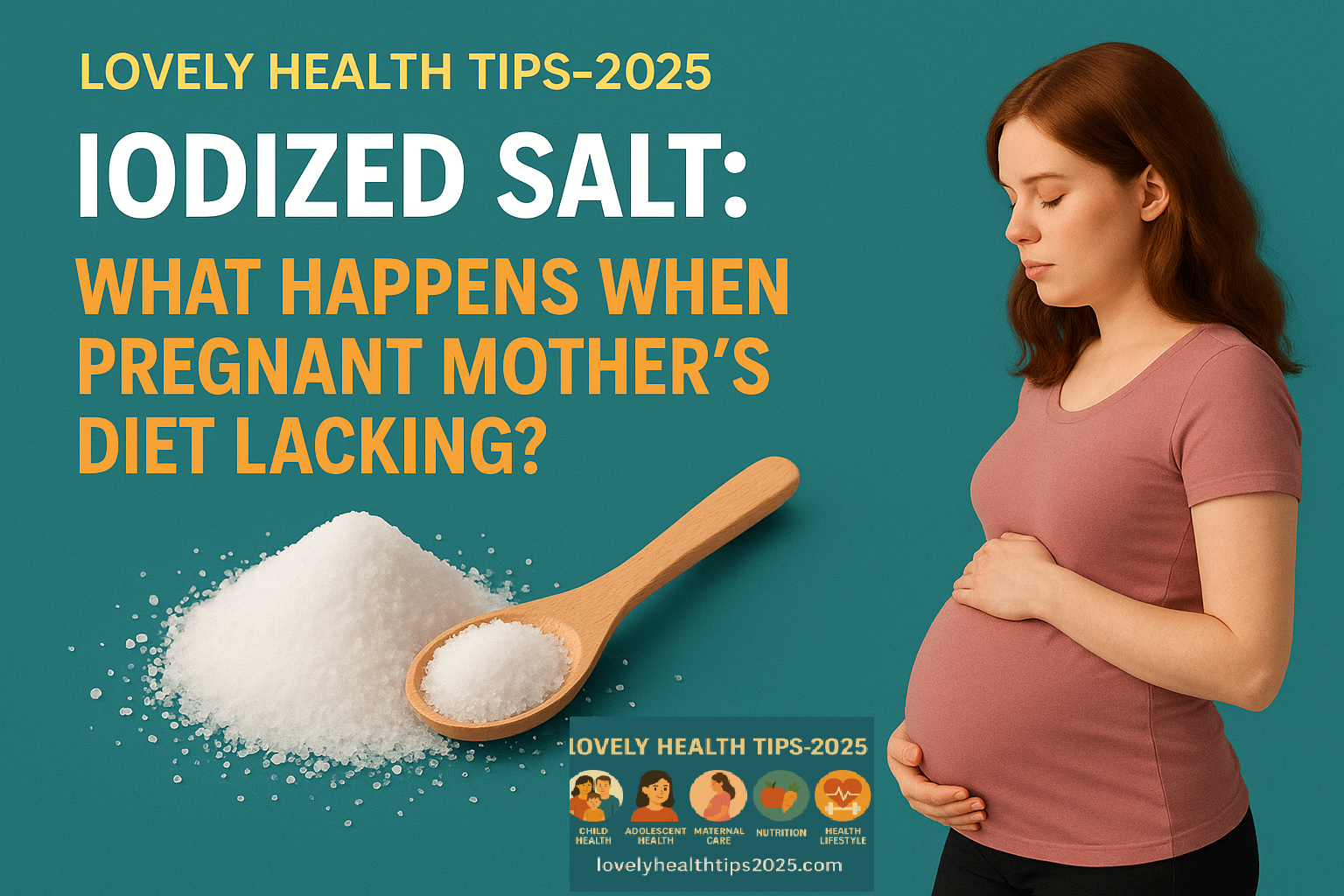Last Updated on October 21, 2025 by
Adequate iodine is important for the proper growth of both a baby’s thyroid and brain. Iodine supplements such as iodine-enriched salt, are usually recommended for pregnant and breastfeeding mothers. Despite adding iodine to salt, there are still elements that could make the infant iodine deficient.
Indeed. If we store and later on cook, iodine quantity loses in iodized salt.
Ø Between 7% and 70% of iodine may be lost during cooking. The way you cook and for how long influence the concentration of vitamins in your food.
ØHow much food is lost depends on the method; the most is lost in boiling and pressure cooking and the least in deep-frying.
Ø You must consume two glasses of milk, two katori of curd, two full-boiled eggs, and one katori of spinach each day in order to guarantee that you achieve your daily requirements.
Ø After cooking, season meals with Iodised-salt.
ØAdd Iodised-salt either after cooking or later in the cooking process.
Ø Don’t keep it near the heat and steam in the kitchen.
Ø It should be kept in an airtight glass jar after it has been opened.
 |
| Good sources of Iodine Rich food |
FAQs:
Q1. During pregnancy, women why include iodized salt in their diet ?
Ans. The essential mineral from iodized salt supports brain development in the baby and maintains thyroid function and enables proper growth. Pregnant women need iodized salt because it controls both the thyroid hormone levels that are essential for pregnancy.
Q2. The absence of adequate iodine in a pregnant female results in which negative effects?
Ans. A pregnant woman’s lack of iodine may result in multiple severe health complications which include the loss of a pregnancy and continuing pregnancy to full term and cognitive impairments in her child. Hearing problem may be seen with less development in growth.
Q3. What should be the appropriate iodine daily dosage for pregnant women?
Ans. A daily requirement of 220 micrograms (mcg) of iodine will support healthy development for the baby and meet the needs of pregnant women.
Q4. Apart from iodized salt what is an alternative source of iodine in the diet?
Ans. Iodized salt serves as one source but pregnant women can also obtain iodine through dairy products together with seafood types like fish and seaweed along with eggs and fortified bread.
Q5. Does an inadequacy of iodine have any effect on an infant’s health following birth?
Ans. If a mother lacks iodine, her newborn may show signs like poor thinking ability, delayed cognitive skills, trouble with speech and issues with growing muscles.
Q6. Does consumption of large proportions of iodized salt present any dangers to the pregnancy process?
Ans. Although we require iodine, an excessive level of iodized salt increases blood pressure, and it could lead to additional health problems. Generally, it is recommended to use iodized salt, but when pregnant, eating less salt is a good idea.
Q7. Every pregnant woman requires iodine supplementation or not needs evaluation.
Ans. Not always. Iodine supplements should not be taken if a woman gets enough iodine in her daily meals. Those who are strictly following a diet or living somewhere un-iodized need to seek guidance from a medical professional about taking supplements.
Guideline of WHO for Iodized Salt for Pregnant Women and its link as mentioned below: https://www.who.int/tools/elena/interventions/iodine-pregnancy
Thanks and Regards
About the Author – “Mr. Bibhu Ranjan Mund”, Master in Public Health (MPH) from IIHMR University, Jaipur (Rajasthan) has experience of 18 years in Public Health activities. Through “Lovely Health Tips-2025”, we share the evidence & experienced based health & wellness guides with solutions for every day well-being. More from Author
Disclaimer
This information is suggestive only and not a replacement for medical advice. For more detail, please visit to my website as mentioned below:

